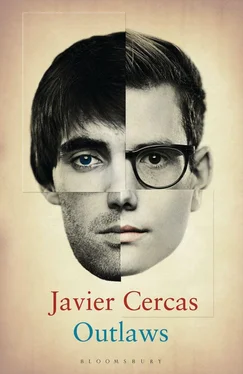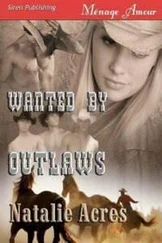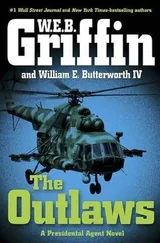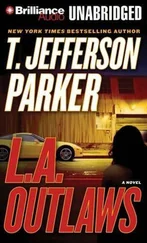‘I don’t know. Let’s say you don’t seem to have a killer instinct.’
‘Because I put it away in a drawer, as Calamaro’s song says. But I did have it, no doubt about it. Who knows, maybe I’m getting old.’
‘Don’t be cute. You’re not even fifty.’
‘What’s that got to do with it? At my age, not long ago, people were already old, or almost. My father died at fifty-seven; my mother didn’t live much longer. Now everybody wants to be young; I understand, but it’s a bit stupid. It seems to me the fun in all this is being young when you’re young and being old when you’re old; in other words: you’re young when you don’t have memories and you’re old when behind every memory you find a bad memory. I’ve been finding them for a while now.’
‘Yeah. Well. Let’s go on then. Tell me about your life after you lost sight of Zarco until you saw him again.’
‘There’s not much to tell. When I finished high school with the Marist Brothers I went to Barcelona. I spent five years there studying law at the Autónoma and living in student flats. I lived in three different flats; the last was on Jovellanos Street, near the Rambla, and I shared it with two classmates: Albert Cortés and Juanjo Gubau. Cortés was from Gerona, like me, but he’d studied at the Vicens Vives Institute, like my sister; Gubau was from Figueras, and his father was a court solicitor. We studied hard, didn’t do drugs and went home on weekends, except during exams. At the beginning of my time in Barcelona I was still going out with Montse Roura, but after a year we split up and that ended up disconnecting me from my group of friends from the Marist school, who by then had otherwise all pretty much gone their separate ways. Then I went out with a few girls, until in third year I met Irene, who was also studying law but at the Central University. Three years later we got married, moved to Gerona and had Helena, my only child. By then I had started working in Higinio Redondo’s firm. I told you about Redondo before, I don’t know if you remember him.’
‘Of course: the man who lent your father the house in Colera to hide you, no?’
‘Exactly. And also the one who convinced my father that afternoon not to take me to the police station; or at least that’s what I’ve always believed. . He was an important person in my life. I mean Redondo; so important that, if it hadn’t been for him, I most likely would not have become a lawyer: after all I never had any lawyerly vocation. Redondo was from my parents’ hometown and had set up a criminal-law practice, and at some stage of my adolescence I admired him a lot, maybe because he was the opposite of my father, or because he seemed like it to me: my father didn’t have money and he did; my father didn’t have a degree and he did; my father didn’t go out at night and he went out almost every night; my father was a political moderate and voted for the centre parties and he was a radical: in fact for years I believed he was a Communist or an anarchist, until I discovered he was a Falangist. In any case he was a good lawyer and a good person and, although he was also a frivolous, irascible kerb-crawler, drinker and gambler, he loved my family and he loved me. He encouraged me to study law and, as I said, when I graduated he took me on to do articles in his practice, taught me what he knew and after a few years made me his partner. A little while later something happened that changed both our lives completely. What happened was that Redondo fell in love with the wife of a bankrupt client; he fell in love for real, like a teenager, left his wife and four children and went to live with her. The problem was that when the client got out of jail thanks to Redondo’s efforts, the woman left him and went back to her husband. Then Redondo went crazy, attempted suicide, finally disappeared and we had no news of him until four years later we learned that he’d been killed while crossing a street in downtown Asunción, Paraguay, run over by a delivery truck.
‘That’s how I became the senior partner of Redondo’s firm. By then Irene and I were getting divorced and she moved back to Barcelona and I began to see my daughter only every second weekend and on holidays. But professionally it was the height of my career. Redondo, as I told you before, had taught me many things — among them that a lawyer can’t be a good lawyer if he’s not able to set aside his moral scruples every once in a while — although I learned others on my own — including how to manage the press. I also learned that, if I wanted to grow, I needed to delegate, and I was able to hire good people: I contracted Cortés and Gubau, who were then working for a firm in Barcelona, and later made them partners, though I remained the senior partner. Anyway, I had my killer instinct intact, I was obsessed with being the best and I was, to such an extent that, as Cortés started to say, not a punch was thrown in Gerona without the thrower or receiver passing through our office.
‘Then suddenly everything changed. Don’t ask me why; I don’t know. The thing is that precisely at that moment, when I had achieved the money and position I’d been fighting to achieve for years, I was overcome by a sense of futility, the feeling of having already done all that I needed to do, that what I had left to live wasn’t exactly life but rather life’s residue, a sort of insipid deferral, or perhaps the feeling was that, more than insipid or bad or deferred, the life I was leading was an error, a life on loan, as if at some moment I’d taken a wrong turn or as if all that was a small but terrible misunderstanding. . That’s how bad or muddled I was seeing things just before Zarco reappeared, or maybe that explains in part — a small part — what happened with him.’
‘As well as a successful lawyer you’re an unusual lawyer.’
‘What do you mean?’
‘Before becoming a lawyer you were a delinquent, which means knowing first hand both sides of the law. That’s not so common, is it?’
‘I don’t know. What I do know is that a lawyer and a delinquent are not on two different sides of the law, because a lawyer is not a representative of the law but an intermediary between the law and the delinquent. That converts us into equivocal, morally dubious types: we spend our lives with thieves, murderers and psychopaths and, since human beings function by osmosis, it’s normal that the morals of thieves, murderers and psychopaths end up rubbing off on us.’
‘How is it that you became a lawyer if you have this opinion of lawyers?’
‘Because before I became a lawyer I had absolutely no idea what it meant to be a lawyer. Well, I’ve told you my life story.’
‘Yes. I’d like you to tell me now what your relationship was with Zarco during the years you didn’t see him; that is: how did you follow the creation and destruction of the Zarco myth?’
‘First you tell me exactly what you understand by the word myth.’
‘A popular story that is true in part and false in part and that tells a truth that cannot be told only with the truth.’
‘You’ve obviously given it some thought. But tell me: whose truth?’
‘Everyone’s truth, one that concerns us all. Look, these kinds of stories have always existed, people invent them, can’t live without them. What makes Zarco’s a little different (one of the things that makes it a little different) is that the people didn’t invent it, or not only people, but most of all the media: the radio, the newspapers, TV; also songs and movies.’
‘Well, that’s how I followed the creation and destruction of the Zarco myth: through the press, books, songs and films. Like everyone. Well, not like everyone: after all I’d known Zarco as a kid; or rather: not only had I known him but I’d been one of his guys. Of course that was a secret. Apart from my father and Inspector Cuenca, no one who hadn’t hung out in the district back then knew that at the age of sixteen I’d belonged to Zarco’s gang. But my father had never made the slightest mention of the matter and, as far as I know, neither had Inspector Cuenca, at least until I said you should talk to him. The thing is that during those years I assiduously followed everything that appeared about Zarco, clipped out and saved articles from the newspapers and magazines, watched the films based on his life, recorded the reports and interviews they showed on television, read his various memoirs and the books others wrote about him. That’s how I put together the archive I lent you.’
Читать дальше












